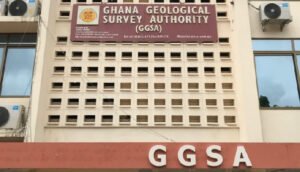
President Akufo-Addo
The government’s commitment to taking the infrastructural transformation agenda of the country from the level of hallowed pledge to implementation is just about rolling out, according to the Minister of Roads and Highways.
This infrastructural transformation effort comes on the back of the huge deficits in road infrastructure, and health and educational facilities the country has been bedevilled with since the late 60s.
The records clearly show that the current government has embarked upon road construction works unprecedented in the history of the country. That’s aside of other critical initiatives such as construction of model markets and schools.
Kicking off presently, among other sleek infrastructure to seal a boom in the road sector, are seven modern bridges and five interchanges, the sector Minister explains. Again, the vision comes against the backdrop of threats still raging globally on account of the COVID-19 on global businesses and economies.
Burden sharing
Of course, concerns have been raised by development partners about our increasing debt burden that must be controlled before it explodes.
That is why the government has presented a proposal to Parliament to restructure the economy permanently by an introduction of a novel tax regime that puts all economic actors under the lens of responsibility and burden-sharing.
In spite of all the challenges, Ghana is still credible not only for scoring a positive in growth among the teeming global communities, with hopes that it is likely to grow a modest four percent plus for 2022.
Foundation for growth
There is still relative robust foundation, which some analysts say should provide hope for investors and funding agencies. Parliament, which is the voice of the people, should therefore feel relieved in supporting the passage of the E-Levy Bill as Ghana takes a crucial and decisive step in leading the sub-region and Africa, for that matter, in more tangible growth.
As development experts would agree, infrastructural development is key in laying a solid foundation for strong, robust economic growth.
Since 2000, we have been complaining about our poor road networks, not only in our urban areas and eastern, western and central corridors, but also into farming communities in the Middle Belt and the northern regions.
In addition to that are the connecting cocoa production areas and Volta Lake communities in the Volta, Eastern and Northern regions where fish and food come into our southern markets in huge quantities.
Beating the lamentations
Our MPs are therefore right when they make lawful noise about ‘schools under trees’ and lack of access to education and health in ‘island’ communities in the Western North and Northern regions, for example.
Kids staying home during rainy seasons, owing to lack of bridges to connect them to neighbouring communities, does not facilitate development individually, socially, economically and nationally. Additionally, we have lived with recurring reports about pregnant mothers losing their lives and babies because of lack of convenient access to health facilities.
All these are critical issues we must gather courage to deal with by raising the creating the required funding sources within.
Appeal to our MPs
Our MPs travel a lot on account of the duties that they have to perform. And they know the way other nations went in developing the infrastructure they always return hailing from their visits abroad.
That is why we would expect them to get back to the constituencies to tell their constituents the story of how other nations have developed through effective, comprehensive and all-inclusive tax regimes.
Any objective assessment of the current state of affairs of the country as far as our development is concerned will lead to the conclusion that we need the proposed E-Levy to fund our critical needs, as being articulated by the Minister of Finance.







